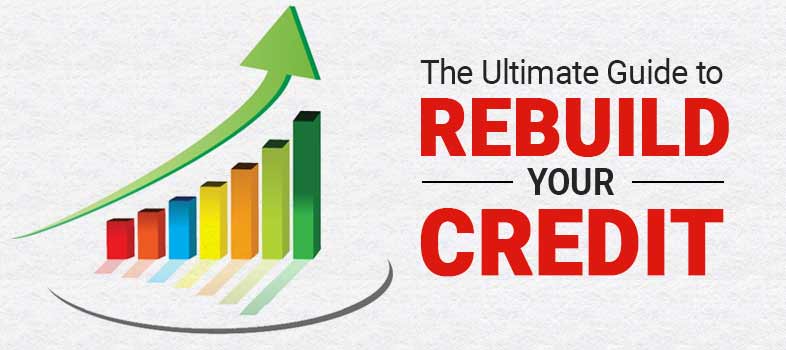It might be more difficult to rebuild your credit than it is to start from scratch. You’re attempting to prove to lenders and credit card companies that, despite mistakes on your part or tragedies beyond your control, you’re extremely likely to make future payments on time.
It’s crucial to know where you stand before you start rebuilding your credit. It’s possible that your credit score isn’t as awful as you believe. The good news is that even if you’re beginning from scratch, you may make great progress rapidly. Even little improvements may provide you with greater financial possibilities than you now have.
Begin by ensuring that there are no inaccuracies on your credit reports that are preventing you from moving forward. Correcting a major error in your report has the potential to quickly increase your score. If you’ve been granted forbearance or a delay due to the coronavirus epidemic, double-check that the information is valid. Checking your credit reports might also alert you if you’ve been a victim of identity theft. There are firms that will contest inaccuracies on your behalf for a fee but weigh the benefits and drawbacks before deciding.
Let’s see another 5 simple strategies to follow to rebuild credit:
- Never Miss a Payment
Make sure to pay your bills or any existing lines of credit on time, every time. Even paying the bare minimum amount is alright if that’s all you can afford at that time. If even that’s not possible, you should contact your creditor to see if alternate arrangements can be made at least for the time being.
This is because your payment history is the single most important element that influences your credit score. You can’t afford to have a payment listed as late while you’re trying to improve your credit. Late payments may linger on your credit reports for up to seven and a half years, making them more difficult to overcome than other credit mistakes.
Prioritize the invoices that have previously been sent to collections where your account is still active.
- Pay More Mind to Credit Utilization
The proportion of your credit limit that you’re utilising is referred to as “credit utilisation.” The amount you use has a significant impact on your credit score; however, paying on time is even more important.
Most experts advise that you use no more than 30% of your credit limit on any card, and that the lower the limit, the better. Check your credit usage for all your credit cards and focus on the ones with the greatest utilisation. Your credit score might improve as soon as your credit card provider reports a decreased balance to the credit agencies. Once you’ve paid off your debts, your credit score won’t be harmed by previous excessive credit use.
- Opt for a Secured Credit Card
This product is often used by individuals who are starting to build their credit from scratch. You may need to start afresh with a secured credit card if your credit card accounts have been closed. A deposit is required for these cards and that deposit serves as your credit limit, although they function similarly to any other credit card. Choose an issuer that reports payments to each of the three main credit agencies.
- Use a Credit-Builder Loan
Credit builder loans, like secured credit cards, are designed for those who are new to credit or need to rebuild their credit.
They’re not the same as traditional loans. Instead of giving you a flat sum of money and then expecting you to repay the lender plus interest, the financial institution gives you a loan and deposits the funds in an account – commonly a savings account or a CD. Then you pay the lender a certain monthly sum. Throughout the duration of the loan, your good payment history is recorded to the credit agencies.
It’s worth noting that the size of your credit builder loan won’t make a difference in terms of credit building. Your payment history and the amount of the debt you’ve paid off are the most crucial criteria here.
- Become an Authorized User on Another Credit Card Account
You can ask someone to add you to a credit card as an authorised user. You may improve your credit merely by being a user, you don’t have to make any purchases or use the account per se. A few credit cards even allow main cardholders to establish spending limitations for authorised users, which may help the account holder feel more comfortable with you being added. You might even request that someone add you without providing you with a card or card number.
But there are still two things to keep in mind: because you aren’t legally accountable for the account’s debts, the impact on your score may be minor. Also, if the account holder doesn’t pay the bill on time, being an authorised user might affect your credit score, so ask someone with strong credit habits.
Conclusion
As soon as you begin to accumulate positive credit information to counter-balance the negatives, you should see an improvement. You’ll be able to consider additional credit products that give rewards and incentives to consumers as your credit score improves over time. Choose a method (or a mix of tactics) that works best for you, and then track your progress to effectively and efficiently rebuild your credit.

